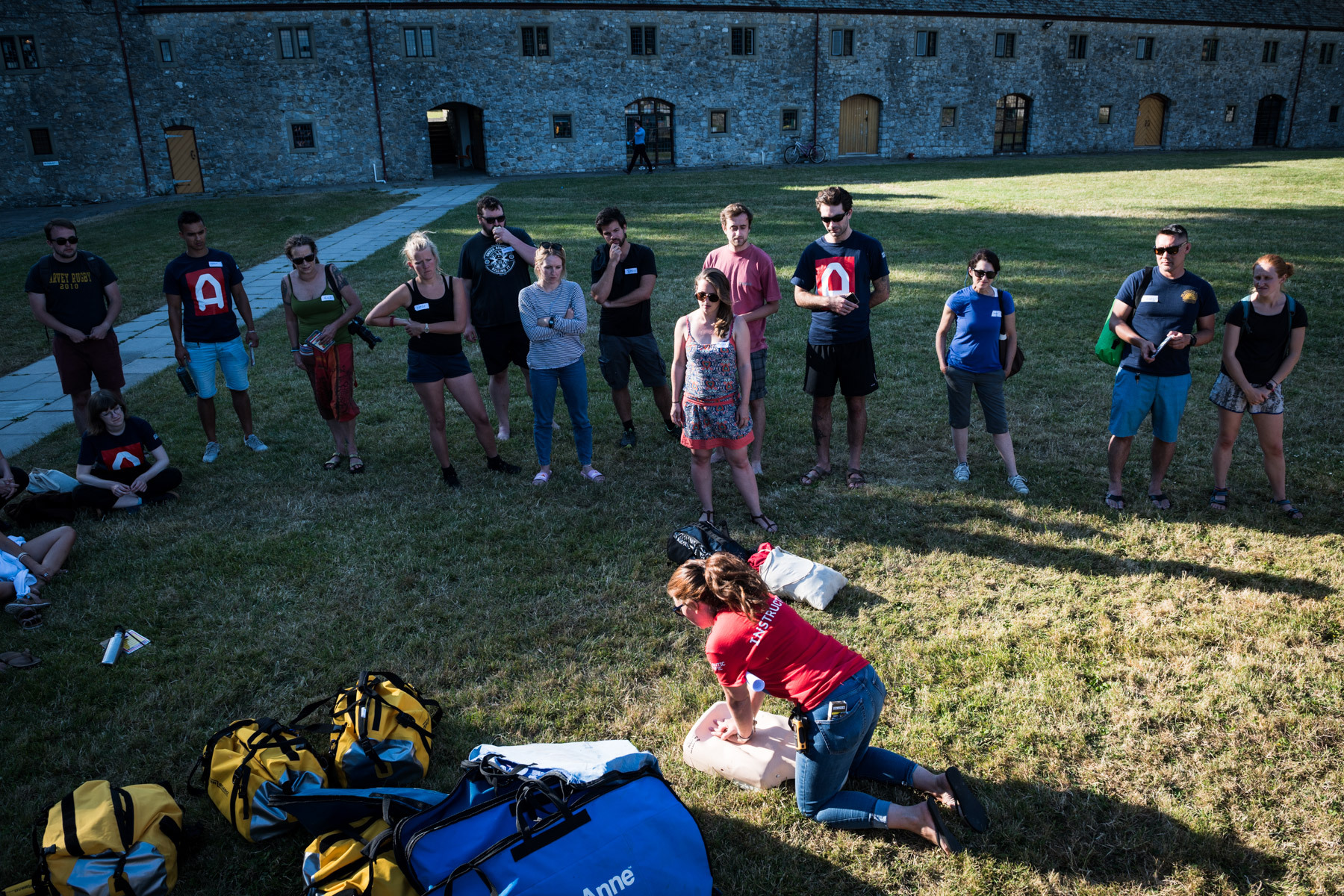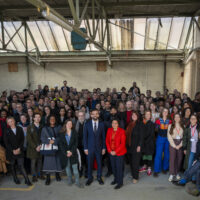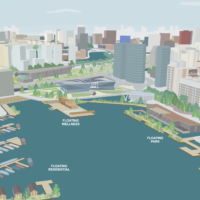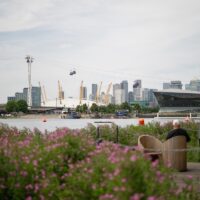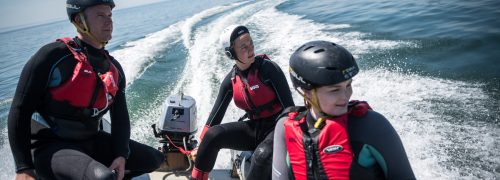
Regeneration news
‘Lifeboat in a Box’ training centre coming to Royal Albert Dock
Atlantic Pacific are a small charity with a simple and impossibly demanding dream: a world in which no one drowns.
Targeting places vulnerable to drowning, flooding, or natural disaster, they provide mobile lifeboat stations in shipping containers to communities, as well as training local crews. Beginning in Japan, Atlantic Pacific now have projects in Greece and Libya, and will soon launch in Mozambique.
The charity’s training hub is coming to Royal Albert Dock. Here, they plan to build a new seafaring community for Newham young people. You can support this work here by donating to their crowdfunding campaign.
Founders Robin Jenkins and Kate Sedwell explained their vision to train and equip — and eventually hand over to — the people of the borough.
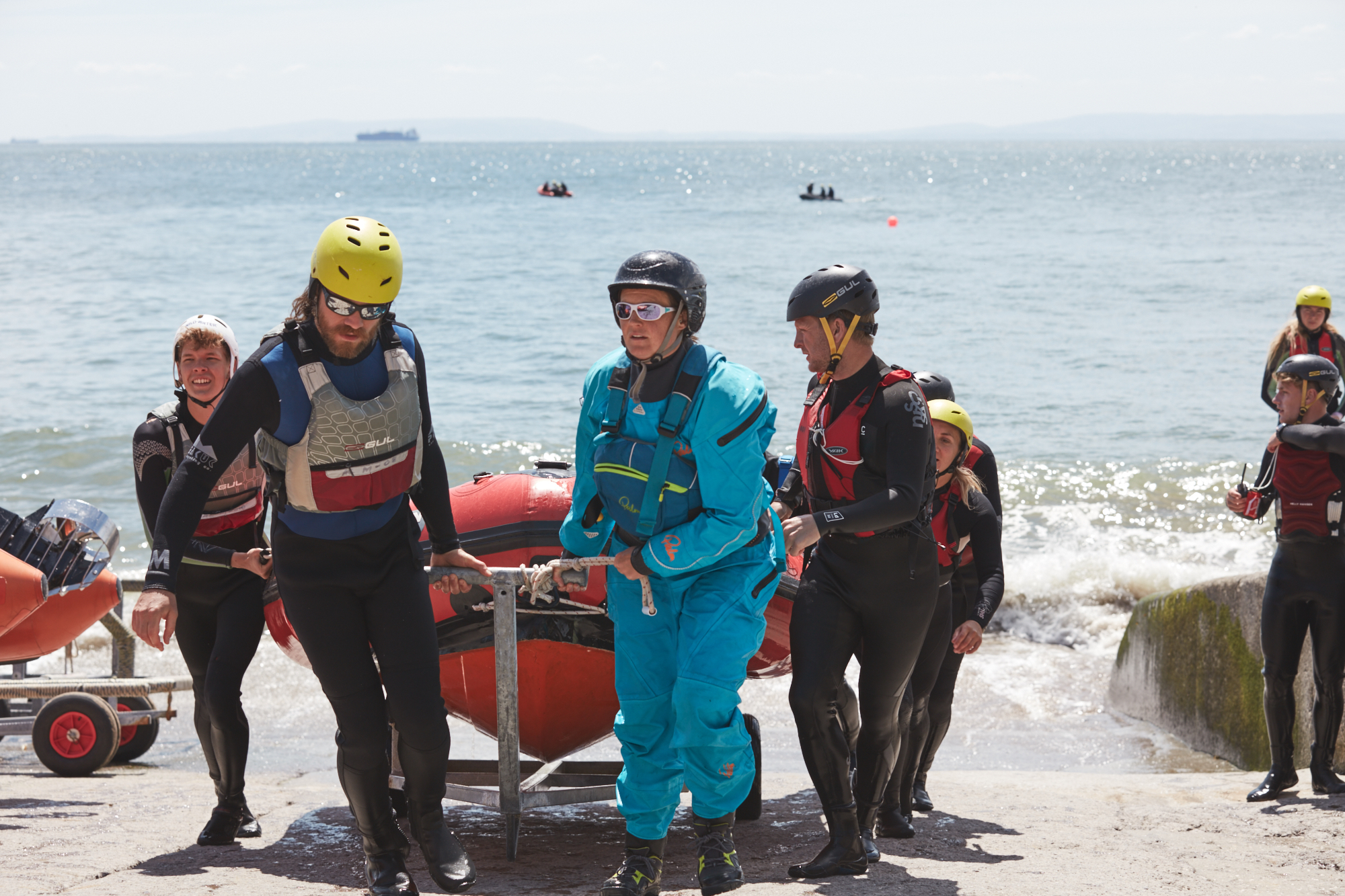
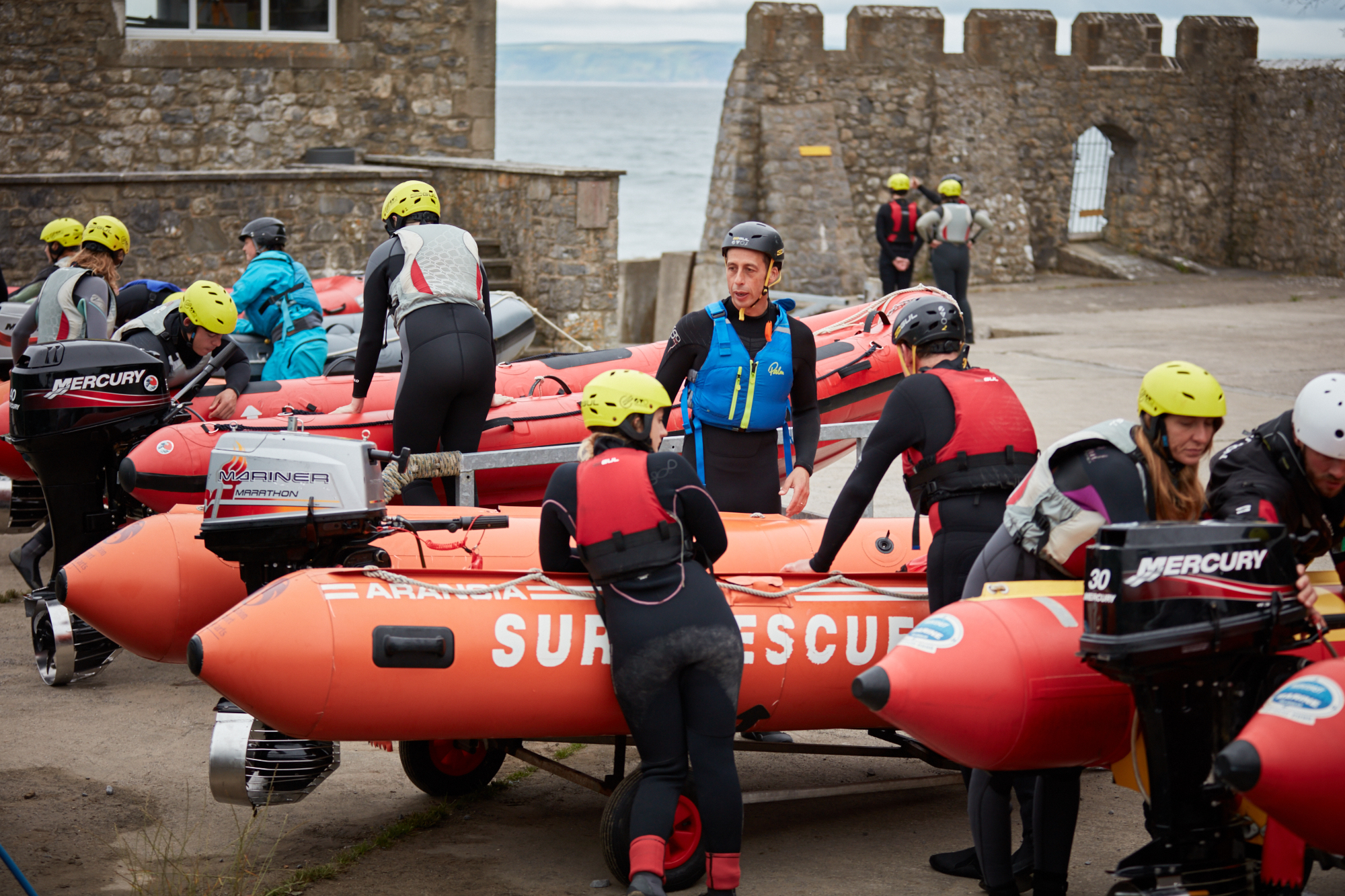
Training in progress
Theses photos were taken at Atlantic Pacific's current centre in Wales. These photos were taken by Laura Lewis and the photo at top by Nick Jaussi.
What led you to found Atlantic Pacific?
Robin Jenkins: I’ve been a lifeboatman since I was 17, and I went to school where the rigid inflatable boat (RIB) was invented.
Where was that?
Robin: Atlantic College in South Wales. The college invented the RIB back in the 60s, and they gave the patent to the RNLI for a pound — and forwent £13m! £13m revenue in the UK alone every year.
Is that because RIBs are a very common boat structure?
Robin: RIBs are the most successful boat in seafaring history, ever. When I was working in Japan, I discovered that Japan doesn’t have anything like the RNLI. If they had, during the tsunami there would have been a possibility that they would have saved quite a lot of people. So I proposed that we start a lifeboat service in Japan and the community that we were working for got on board. My students at Chelsea College of Art designed a mobile lifeboat station. It’s a 40-foot shipping container that you can put the lifeboat in, and a workshop and a changing room.
At the same time, I got involved in the refugee crisis in the central Med. The amount of volunteers that were there was really heartening, but the lack of skill they had became problematic. We were training a group of people to go out to Japan down in Wales. We decided that we’d open it up, and we were inundated! So far, we’ve trained 120 crews. One of our goals is to become reactive, to be able to deploy into any kind of situation within 24 hours. That’s our target. But the business we’re in is a complicated, expensive, resource-heavy business.
What we’re looking at in the Royal Docks is an ability to expand on our training, to work with communities here and with children in Newham. My story was growing up right next to a lifeboat station and fantasising that one day I’d be a lifeboatman. I was fortunate enough to grow up in a house by the sea by a lifeboat station. There aren’t many people who get that opportunity.
I was fortunate enough to grow up by a lifeboat station. There aren’t many people who get that opportunity.
Robin Jenkins, Atlantic Pacific co-founder
Boats are expensive to buy, to run, or even to hire.
Robin: Actually, boats are expensive because the people who can afford boats are rich.
It’s a self-sustaining cycle?
Robin Definitely. We manufacture very cheaply and yet to a very high standard, and that’s through creativity and invention. The RIB wasn’t expensive; it didn’t go down in the traditional annals of naval architecture. It worked so well because they were overcoming a specific problem: a very rough sea and a boat that needed to be stable and agile, and that could land on a beach. With only a little bit of training, you can be quite confident on one. A RIB is a really democratic boat.
What are your plans for the Royal Docks?
Kate Sedwell: We see this as our training centre. We’re targeting the children that may not be in mainstream education. They’ll do search and rescue training, they’ll get causality care training, and they’ll get psychological wellbeing training. We’re looking at ways to engage children and get them to think about real careers. That may not be search and rescue, but if they’re doing a casualty care course, they may be interested in being a paramedic or an ambulance technician. We’ll also teach them about what’s happening in Japan, what’s happening in Mozambique, why there’s a movement of people up into Europe: give them a global perspective of what’s happening and how they could help.
One of the first jobs we will do here is employ local young people to become our trainers and our instructors. Everything is always local.
Kate Sedwell, Atlantic Pacific co-founder
Robin: The opportunity to have a gap year is not that available. But we could present it in a different way. Why not come and work for us in Mozambique for six months setting up a lifeboat station? If you look at the search and rescue world, it’s still [largely] white guys who’ve learned how to climb and learned how to boat; adrenaline-junky guys who’ve said, ‘I’m going to go and put this to good use.’ I’m not condemning what they do. But when you rescue a group of people who are coming out of Libya, they are almost all black, and it’s a very weird dynamic.
Is it important to you to change up that dynamic?
Robin: It’s something that we’re quite passionate about. If you really boil it down, what we want to create is the best search and rescue operative that you can get, and we don’t want to limit ourselves to a certain audience.
Kate: One of the first jobs we will do here is employ local young people to become our trainers, our instructors, and then leave them to grow the outreach project. Everything is always local.
Robin: The provision of an asset [such as a lifeboat] is the trigger. But ultimately it’s about encouraging an industry, and then a tradition.
Atlantic Pacific are raising crowdfunding for the Royal Albert Dock training station, and you can support them here.
